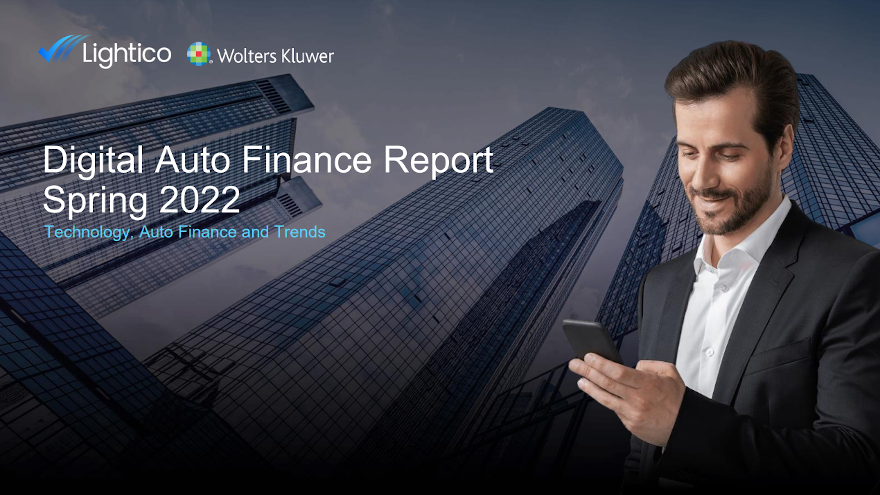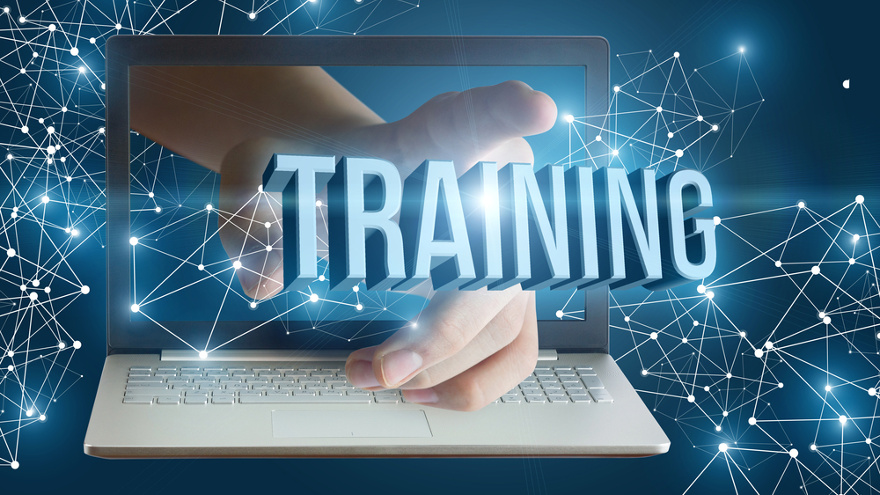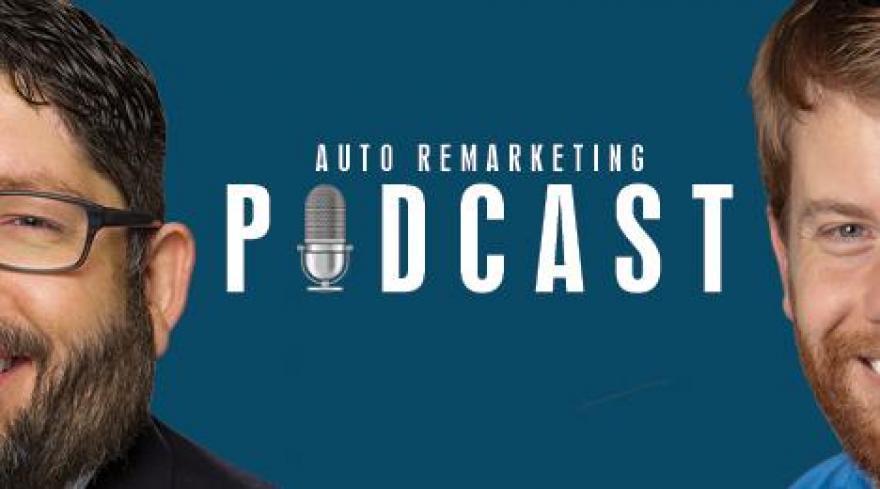While you might occasionally still see someone with a flip phone attached to their belt, most consumers are walking around with a smartphone in their pockets with the capability on par with a laptop computer.
And the Digital Auto Finance Report Spring 2022 compiled by Lightico and Wolters Kluwer Compliance Solutions showed the majority of those consumers want to use their smartphones to finalize their auto financing.
The report, which surveyed 902 U.S. adults, revealed that 87% of consumers feel that the ability to complete financial transactions on their mobile device was important or very important, with 42% of even the oldest respondents age 65-plus agreeing with that sentiment.
“Auto finance has long struggled with completing loans quickly, efficiently and in a way that is convenient for consumers,” Lightico chief executive officer and cofounder Zviki Ben Ishay said in a news release. “The expectation from consumers for auto loans is the same as for an Amazon purchase — easy, seamless and from anywhere, especially their phones.
“Even after two years of intense digital development and transformation, there are many lenders that need to digitalize the complete customer journey,” Ben Ishay added.
Other key trends from this survey included:
• 71% would not take on auto financing or make a vehicle purchase if it requires a physical visit
• 46% of consumers see ease of completion as important in an auto finance provider
• 57% of auto financing were completed within 24 hours
“Complete mobile transaction solutions today require digital financing that’s efficient, reliable, end-to-end and secure in order to satisfy the expectations of today’s consumers while ensuring full compliance by automotive and finance organizations,” said Tim Yalich, who is head of auto strategy for Wolters Kluwer.
“We are now able to shift focus to digitization as a solution for more automation throughout the vehicle application, financing and securitization process, with robust tools that are built around e-signature, e-contract and e-vault solutions for a complete end-to-end solution,” Yalich said.
Lightico and Wolters Kluwer recently announced a partnership that integrates Wolters Kluwer eVaulting technology with Lightico’s Digital Completion Cloud to provide seamless and compliant services to financial institutions.
Assurant recently rolled out enhancements within two areas its clients and dealers might want the most reinforcements — training and mobile technology.
First, Assurant launched Pocket Geek Auto, a mobile app that can help dealers and clients connect with their customers. Then, the company introduced Automotive Training Academy by Assurant, its modernized and expanded automotive training program delivered in the classroom, at dealerships and online via the Assurant Virtual Learning Platform.
Assurant highlighted that Pocket Geek Auto is designed to deliver a more personalized car ownership experience, strengthen its core F&I offers and drive service revenue.
The Pocket Geek Auto app is free for Assurant clients and their consumers purchasing a vehicle, and automatically can populate with the unique information specific to that customer — like vehicle and products — at the point of sale.
“Pocket Geek Auto allows dealers and clients to modernize their customer experience, grow their revenue, and retain more loyal customers,” Assurant Global Automotive senior vice president of global transformation Martin Jenns said in a news release.
“Customers have developed digital relationships with banks, retailers and other service suppliers. Now with Pocket Geek Auto, our dealers and clients can take a proactive and industry specific approach to build stronger connections with their customers.”
The company explained that Pocket Geek Auto’s technology and open API can pull in more than 20 integration points and complements OEM apps already in use with different dealer specific features.
Dealers and other Assurant clients offering protection plans will have full control of branding, imagery and offers digitally delivered to their consumers, including reporting features that allow for real-time analysis of consumer interactions.
The Pocket Geek Auto app also offers key features, including:
— Personal TechPro: On-demand technical support for in-car technology via chat or voice
— Maintenance Manager: Maintenance alerts and reminders to drive service revenue
— Digital Glovebox: Will store vehicle related documents like protection plans and policies and service receipts
— Customer Notifications: Automated recall alerts and tools to present direct service and sales offers to customers
— Claims Management: To simplify the claims process by allowing customers to report a protection policy claim and get status updates directly through the app
— Additional upgrades and capabilities will be added and automatically pushed to current app users.
“Our clients continue to look to us for innovative ways to solve today’s business problems. We leveraged our learnings across the Pocket Geek family of apps, specifically Pocket Geek Mobile, to bring an enhanced experience for today's digitally-driven consumer,” Jenns said.
Details of revamped training offering
After acquiring American Financial & Automotive Services (AFAS) last year, Assurant has combined its legacy training programs, leveraging its other industry offerings and teams to provide a comprehensive training curriculum.
“The new Automotive Training Academy goes beyond the F&I office, offering a holistic training approach for dealership employees,” Jenns said in another news release.
“We have long admired AFAS’s award winning training program and knew we could provide an industry leading training solution by combining our offerings,” he continued.
Assurant highlighted the Automotive Training Academy utilizes a hands-on approach for in-person and in-dealership training that can allow attendees to not only learn, but also practice new and innovative techniques. Interactive teaching methods such as group discussions, simulated role-play experiences, and performance evaluations are used in correlation with the latest automotive training curriculum to enhance the attendee’s understanding and proficiency with the course material.
The training includes courses in:
— F&I training
— Advanced F&I training
— Sales training
— Sales manager training
— Service advisor training
— Leadership training
— Compliance training
With Assurant’s Virtual Learning Platform, automotive professionals unable to attend in-person training or those wanting to sharpen the skills they learned in the classroom, can utilize an on-demand option available at any time.
The company added that the Assurant Virtual Learning Platform education curriculum also is enhanced with materials reflective of the ongoing automotive market changes.
“Combining Assurant and AFAS’s training programs allows us to scale faster and adapt to the changing needs of dealers and automotive professionals,” said Ritch Wheeler, vice president of training at American Financial & Automotive Services, an Assurant Company.
“With the new Automotive Training Academy, your dealership can gain the knowledge and tools needed to stay competitive in the ever-changing automotive market,” Wheeler went on to say.
Officials from 700 Credit, the provider of credit reports, compliance solutions and consumer pre-qualification products, announced last week the release of a Mobile Dealer Application for their QuickQualify platform.
The company reiterated that its QuickQualify is a pre-qualification platform that can drives higher consumer engagement from a dealership's website without requiring a Social Security Number or date of birth, providing dealerships with a complete “soft pull” credit report including FICO score.
Now with its mobile app, 700 Credit indicated dealers can view their web leads conveniently and in real-time.
Other benefits to the QuickQualify Mobile App include:
— Receive alerts immediately on a smartphone when consumers complete the QuickQualify web form (soft pull)
— Optimize your interactions with applicants through text, email and one-touch mobile dialing
— View a list of historical applicants with access to credit score and credit file details
— Send the dealership’s prequalification application form to selected prospects right from a smartphone.
“We are excited to bring our mobile application to market for our QuickQualify dealers,” 700Credit managing director Ken Hill said in a news release. “Our lead-generating QuickQualify platform currently texts and emails dealers instantly when a new lead arrives.
“Our customized Mobile App adds a layer of convenience and accessibility by allowing dealers to immediately view pre-qualified leads to more efficiently reach out while a consumer is still shopping,” Hill went on to say.
The QuickQualify Mobile Dealer App is offered at no charge for QuickQualify dealers and can be downloaded from the Apple and Android app stores.
Alex Maritczak recently returned to North Carolina and joined Nick for a conversation about how auto finance companies and technology developers are collaborating on new solutions.
The global auto finance leader at Ernst & Young who also led panel discussions during the Automotive Intelligence Summit described how firms are striving for new developments while also retaining market share and maintaining compliance mandates.
The full episode can be found below.
Download and subscribe to the Auto Remarketing Podcast on iTunes or on Google Play.
You can also listen to the latest episode in the window below.
Catch the latest episodes on the Auto Remarketing Podcast homepage and on our Soundcloud page.
Please complete our audience survey; we appreciate your feedback.
In an effort to bring together vehicle shoppers, dealerships and finance companies, truPayments announced that it has become a participant in the CDK Global Partner Program.
As a member of one of the largest third-party partner programs in the industry, truPayments and its tru Shop-by-Payment are now part of a marketplace of applications and integrations that CDK Global, a leading enabler of end-to-end automotive commerce, developed to help automotive dealers succeed.
“Joining the CDK Global Partner Program will give CDK dealers easy access to the tru Shop-by-Payment product,” truPayments chief executive officer Tarry Shebesta said in a news release.
Shebesta explained tru Shop-by-Payment is designed to provide a unique one-to-one personalized shopping experience, which can connect the right personalized inventory and financing options to each customer based on their unique preferences and profile (including real credit). Shebesta insisted shoppers will discover vehicles they didn’t know they could afford or a payment they didn’t know they could get.
By transforming and personalizing the shopping experience, tru Shop-by-Payment can engage, surprise and delight customers — accelerating their movement through the shopping and buying processes. The company went on to stress tru Shop-by-Payment can enhance dealer CSI scores, online reviews, sales volume and front and back-end gross.
“We’re very pleased to introduce truPayments as the newest member of the CDK Global Partner Program,” CDK Data Services vice president and general manager Howard Gardner said.
“truPayments is a welcome addition to our vibrant program, which provides dealers with a range of partner choices and the assurance that their programs can be seamlessly integrated with our applications,” Gardner continued.
Gardner added the CDK Global Partner Program provides its partners with access to a diverse CDK ecosystem through the ability to integrate with a range of CDK applications and CDK dealer websites.
As the company announced its new Device-as-a-Service (DaaS) subscription business model, CalAmp chief executive officer Michael Burdiek explained the three main elements within the DaaS space that make it attractive and potentially profitable.
In additional comments sent to Auto Fin Journal augmenting this week’s news release, Burdiek pointed out the revenue opportunities stem from a simplified subscription package which includes the device and a host of services, full lifecycle device management and efficient capital management.
“The DaaS model provides a cost-effective and capital-efficient way for businesses to bring telematics innovations to market,” Burdiek said.
“Subscription-based models allow companies to better manage expenses and optimize operations by providing the option to adopt a range of microservices based on changing business needs,” he continued.
“This allows enterprises to focus on core business while leveraging CalAmp’s industry-recognized IoT and machine-to-machine communications expertise to streamline data insights and deliver best-in-class telematics services,” he went on to say.
At CalAmp, the company highlighted its DaaS business model can reduce the complexity of telematics deployments by offering a subscription-based service, including a telematics device bundled with access to a broad portfolio of connected car micro-services, such as CrashBoxx crash response and driver behavior services.
The subscription model also can enable business customers to leverage more of CalAmp’s research and development investments and full portfolio of telematics services to lower their business costs and drive new revenue streams from subscription services.
The global DaaS market is expected to grow by approximately $8 billion by 2023, according to Market Research Future. CalAmp contends the growing momentum is a result of increased demand for subscription-based services that provide flexible business terms while enabling enterprise customers to bring innovative telematics solutions to market.
Burdiek added that the complexities of delivering an end-to-end telematics solution is often underestimated, leading to operational and customer service issues. A subscription service model can allow enterprises to focus on their core business while leveraging CalAmp’s industry-recognized machine-to-machine communications expertise to streamline the flow of data insights and deliver best-in-class telematics services.
“The Device-as-a-Service model provides a cost-effective and capital efficient path for our business customers to more easily bring our telematics innovations to market,” Burdiek said in a news release
“Subscription-based models allow companies to better manage expenses and optimize operations by providing the option to adopt a range of micro-services based on business needs,” he reiterated.
“We anticipate the increased level of flexibility and seamless digitalization will help us build stronger partnerships and result in greater customer loyalty while driving recurring revenue.”
The new subscription model also can allow enterprises to increase telematics security, ensure vehicle device compatibility and capture valuable data insights that improve customer service, while expanding client access to CalAmp’s CrashBoxx instant crash alert services, driver safety and other connected car micro-services.
Burdiek closed his comments to Auto Fin Journal by emphasizing how CalAmp’s past experience and technology in the auto space help the company to roll out this newest product?
“CalAmp heritage in the telematics space has enabled us to have a deep understanding of our customers pain points of deploying and maintaining telematics solutions,” he said. “With DaaS, business customers will be able to leverage more of CalAmp’s research and development investments and full portfolio of telematics services to lower their business costs and drive new revenue streams from subscription services.”
NACHA highlighted the ACH Network, an electronic payment system that safely and reliably moves tens of billions of payments annually, generated another milestone in 2018.
Officials indicated payment volume climbed by almost 1.5 billion payments, marking the fourth straight year the ACH Network has added more than 1 billion new payments.
NACHA said the ACH Network volume reached nearly 23 billion payments in 2018, a year-over-year increase of 6.9 percent and the highest growth rate since 2008. That’s nearly 70 payments for every person in the U.S.
The value of ACH payments in 2018 was $51.2 trillion, a 9.5-percent increase over 2017. It marked the sixth consecutive year in which the ACH payment value has risen by at least $1 trillion. For perspective, the value of last year’s ACH payments was more than two-and-a-half times that of the nation’s 2017 gross domestic product.
Officials went on to mention same-day ACH volume soared in 2018, the first full year with same-day debits as well as credits. There were nearly 178 million same-day ACH payments last year: 98.3 million credits and 79.7 million debits.
Overall, same-day ACH volume jumped 137 percent from 2017. Total same-day ACH value in 2018 was $159.9 billion, up 83 percent over the previous year.
“The results for 2018 make clear that the ACH Network is vibrant and continues to be a vital component of the nation’s economic engine,” NACHA chief operating officer Jane Larimer said.
“With more enhancements to same-day ACH being rolled out this year and next, the experience for businesses and consumers will only get better,” Larimer continued.
NACHA noted several core ACH use cases saw substantial growth in 2018 including:
• Business-to-business (B2B) payments rose 9.4 percent to 3.6 billion with a total value of $34.9 trillion.
• Direct deposits climbed 4.4 percent to 6.8 billion for total value of $9.7 trillion.
• Internet payments jumped 14.2 percent to 5.9 billion with a total value of $2.9 trillion.
• Payments from health plans to medical and dental providers increased 11.5 percent to 306.7 million with a total value of $1.59 trillion.
• Person-to-person (P2P) payments spiked 32.2 percent to 128.7 million for a total value $209.6 billion.
Technology Hyundai is already deploying in South Korea with its financial services enterprises might be a preview of what the OEM eventually brings to the United States.
During IBM Think, Hyundai Card and Hyundai Commercial, financial services subsidiaries of Hyundai and Kia Motors, announced they are working with IBM to advance their use of cloud-based artificial intelligence and blockchain technology with the aim of improving the customer experience and expanding its financial services business globally.
The news was shared on Wednesday during IBM Think 2019, IBM’s annual conference focused on technology and business.
For the first time in the Korean finance industry, Hyundai Card has introduced an AI-based chatbot for customer service. Named “Hyundai Card Buddy,” it can engage with customers to answer common questions quickly while freeing Hyundai professionals to handle more complex customer service needs.
The company said South Korea has some of the highest rates of Internet use than any other country in the world, so Hyundai Card Buddy is a natural way to improve clients’ digital experience. Hyundai Card Buddy has helped 1 million customers since it has launched, according to a news release.
The automaker explained the system continuously learns through interactions with users and by relying on natural language processing and machine learning technology from IBM Watson, Hyundai Card Buddy is able to understand hidden meaning, interpret client questions and provide answers and information to enhance the client experience and streamline customer service operations.
In addition, Hyundai Commercial, a corporate finance company that provides leasing and financial services for commercial vehicles and construction equipment, is collaborating with IBM to apply blockchain and modernize its business model.
Using the open source Hyperledger Fabric to create a new supply chain financing ecosystem for Hyundai Commercial, officials explained the network is designed to reduce lead times and costs in financial transactions among dealers, distributors and manufacturers.
Officials went on to mention the network for commercial financing will provide participants with a single view of all transactions happening in the network while automating manual processes and enabling transaction data to be securely managed and shared more efficiently.
“It’s almost impossible to fully understand or memorize the benefits, limits or conditions of a finance product. Customer services employees’ turnover rate and training cost is very high while the customers demand high quality service. So we introduced IBM Watson and it became a very powerful tool to help our employees and helped us to lower our employee turnover rate to less than 10 percent,” said Ted Chung, chief executive officer of Hyundai Card, Hyundai Capital and Hyundai Commercial.
Andrew Chang, general manager of IBM Korea, also discussed being involved in this technology project. IBM is a world leader in AI software, services and technology for business. IBM has deployed Watson solutions in thousands of engagements with clients across 20 industries and 80 countries.
“Korea enjoys a digital-first financial services industry in which the rapid adoption of technologies such as artificial intelligence, analytics, blockchain and cloud are improving the customer experience and helping expand into new opportunities,” Chang said.
“Working with IBM, Hyundai Card and Hyundai Commercial have pioneered these new technologies and have been a strong innovator in the industry,” Chang went on to say.
Here’s an example of how search engine optimization helped a vehicle-subscription app quickly cultivate a store-leading following.
AutoMotion announced on Wednesday that its Car Subscription app achieved initial consumer adoption, ranking in the top spot for car subscription shopping terms in the Apple App Store.
AutoMotion also highlighted consumer reception has been positive, with the app receiving an average user rating of 4.6 out of 5 starts.
“The team developing the car subscription experience has done an outstanding job, and it’s extremely exciting to see initial consumer usage and feedback,” AutoMotion director of operations Lindsay Fulton said. “We wanted to provide consumers a choice in how they obtain their next car. Car Subscription provides a transparent, complete look at flexible options available today.”
AutoMotion launched Car Subscription to help consumers learn about a new way to get a vehicle. The app uses the AutoMotion Get a Car experience in an attempt to personally match the right vehicle subscription service with a user’s needs.
Within the app, users are able to compare, review and locate car subscription vehicles nationwide. Fulton insisted the movement toward vehicle subscription continues to gain momentum with manufacturers releasing new programs each month.
“User feedback has been positive and constructive,” Fulton said. “The team is dedicated to put the best product in market possible, and we couldn’t do that without valuable feedback from our users.”
Car Subscription is a free platform for consumers available on the Apple App Store and Google Play Store. For more information about AutoMotion, visit http://www.automotionapp.com.
Since blockchain is establishing its presence in the automotive sector, strategy and marketing consultancy Simon-Kucher & Partners projected after dissecting recent study findings that the revenue potential for this technology could ramp up to be nearly $120 billion by 2030.
Simon-Kucher orchestrated a survey to delve deeper into what’s prompting car owners and other road users to be interested in the many ways in which blockchain can be used to create revenue opportunities. The firm learned that survey participants were particularly interested in time-saving solutions such as traffic congestion management (48 percent) and automated payments (54 percent).
The firm’s newest blockchain research also mentioned applications that provide added security such as protected data access (50 percent), enable increased efficiency such as automated payments (54 percent), or greater convenience such as remote access (46 percent) were also popular with participants.
“The added value of blockchain applications for the end customer is obvious,” said Peter Harms, a partner in Simon-Kucher’s global automotive practice. “Automakers need to be aware that they can generate significant profit from these applications.”
The study also revealed how much drivers would be willing to pay each month for various blockchain solutions:
—Traffic congestion management: 27 percent of survey participants would be willing to pay on average $11 per month for this solution
— Protected data access: $11 (7 percent)
— Remote control of vehicle (such as locking/unlocking): $8 (12 percent)
— Automated payments (such as at parking or charging stations): $7 (17 percent)
— Immutability of vehicle records (when buying a used vehicle): $6.00 (7 percent)
Based on these figures, Harms computed that total revenue generated by 2030 is set to reach $120 billion.
“The added value of blockchain solutions and customer willingness to pay for them already indicate enormous monetizing potential,” Harms said. “Now is the time for the automotive industry to start adjusting its strategies and business models, not only to expand their current offerings with blockchain solutions but also to monetize them.”
To accomplish this feat, Harms pointed out industry-wide infrastructure is required.
“Close cooperation among individual stakeholders (e.g. automotive manufacturers, taxi companies, municipal corporations, toll operators) is essential to unlock the multi-billion-dollar potential of this technology,” he added.
The study titled, “Blockchain in the Automotive Industry,” was conducted worldwide in October by Simon-Kucher & Partners. It surveyed various factors, including participants’ level of awareness of blockchain, future areas of application in the automotive industry, and willingness to pay for individual applications.
Founded in 1985, Simon-Kucher & Partners has more than 30 years of experience providing strategy and marketing consulting with a focus on top-line power. The firm has more than 1,200 employees in 38 offices worldwide.












